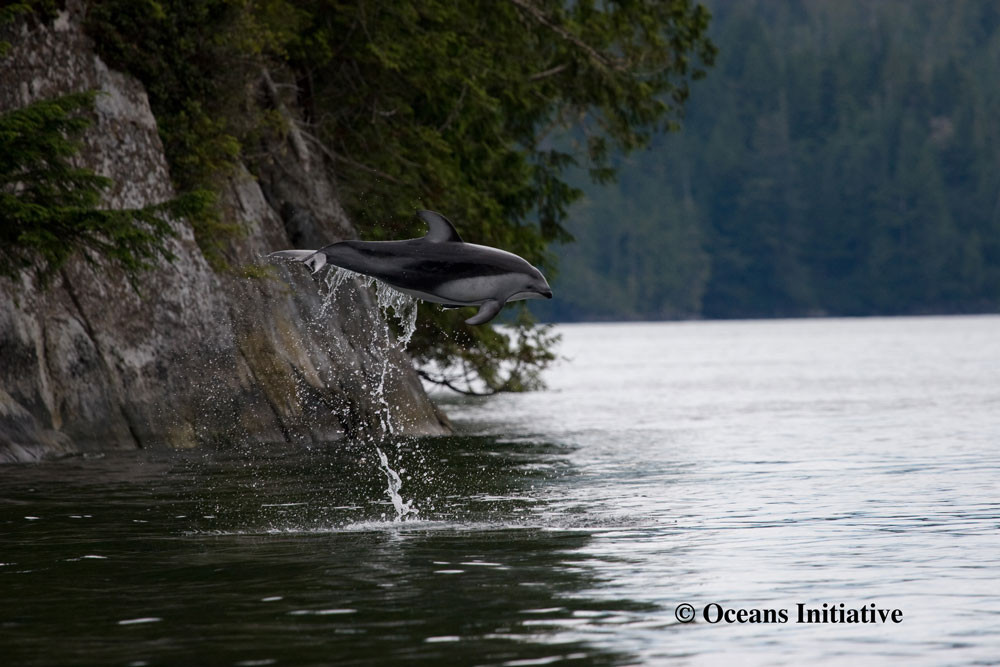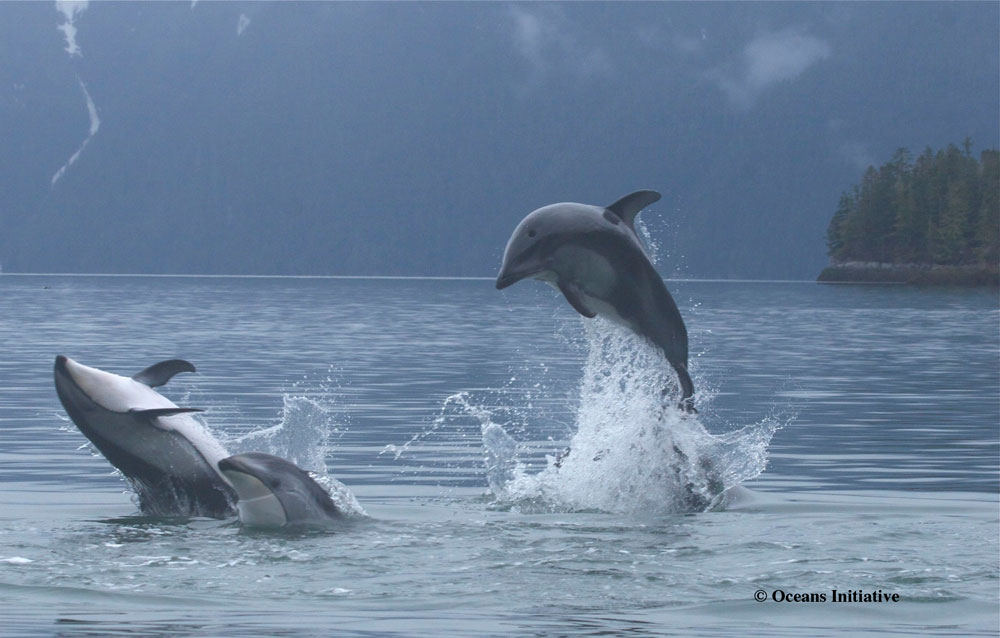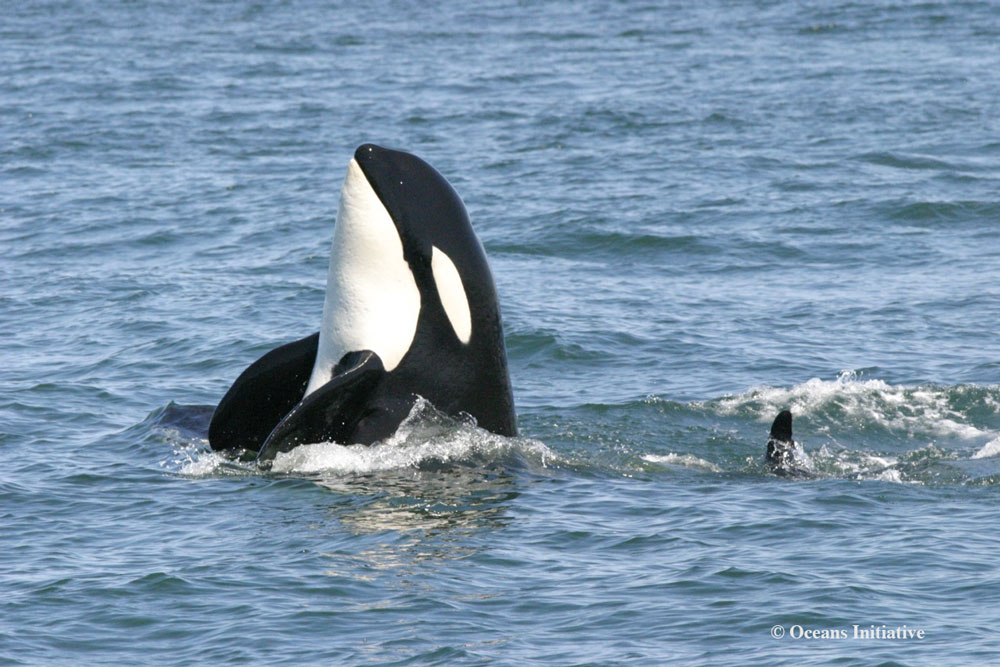Charity Spotlight: This post was provided by Erin Ashe, co-founder of Oceans Research and Conservation Association – ORCA as part of our ongoing charity spotlight series.
Canada is absurdly blessed with wild places full of wild animals. Canada’s Pacific Ocean supports 31 species of marine mammals: whales, dolphins, porpoises, seals, sea lions and sea otters. That’s not counting the sharks, seabirds and other top predators in the ocean. Or the grizzly bears, wolves and dozens of species of land mammals and birds that count on salmon returning to rivers from the sea for the winter or to feed their young.
Oceans Research and Conservation Association (ORCA) exists to support conservation-minded research on species in need of protection. Running a number of projects in Canada and globally under the “Oceans Initiative” brand, we’re a team of scientists on a mission to protect marine life in the Pacific Northwest and beyond. Like the animals we study, we are highly migratory. We spend half our time getting our feet wet in the field, wherever our work is needed, but the other half is spent using our science to inform smart decisions to conserve wildlife. We work from a tiny boat from a tiny island off the grid, off the northeast tip of Vancouver Island. We love it.
Dolphins of the Pacific Ocean
Much of our work in British Columbia (BC) is on Pacific white-sided dolphins. They live throughout the vast Pacific Ocean from Mexico to Japan, but the open water is a tough place to work. Luckily for us, these dolphins rely on a few fjords in BC where we study them, non-invasively, through photo-identification of individually recognizable dolphins that we track through time. We’ve found dolphins using the same inlet for periods of up to 17 years. We’re finding that dolphins have companions: we’ve seen pairs of dolphins swimming together on several occasions more than a decade apart. Sadly, we’ve also seen dolphins bearing scars from boat propellers and fishing gear, and we’re working hard to better understand human-caused threats so we can propose solutions. Click here to listen to dolphin sounds recorded by ORCA.
Implementing Our Methods in the Oceans of the World.
We’re now busy exporting our model of low-cost, low-tech, high return-on-investment science to countries that are not as well off economically as Canada is. We’ve developed an inexpensive toolkit that helps people assess the health of whale and dolphin populations quickly. We’re using the toolkit with whales and dolphins in Gabon, Congo, Colombia and Peru in the next year. Best of all, we train by doing – so we find partner NGOs in other countries, build capacity, and leave the tools and knowledge behind. That allows communities to assess whether dolphins are being affected by harmful fishing practices or proposed industrial development.

Click here to listen to the sounds of a Humpback whale singing in BC.
Sssshhhh! Cutting the ocean noise.
Ocean noise is our other main interest. A whale’s world is acoustic, and families stay in constant contact through song. Shipping and other human activities make the ocean a noisier place: our work helps understand how noise shrinks a whale’s world, and how simple solutions can make life easier and quieter for whales.
About ORCA
Our charity is intentionally small and nimble. It allows us to respond quickly to crises, and take our science where the need is greatest. It allows us to operate with low overhead, so we can deliver high-quality conservation science at low cost. We aren’t activists. We collect evidence, and share the evidence with anyone who wants it. We partner with other NGOs, government agencies, researchers, First Nations and industry. Our partnership with CanadaHelps has been amazing! It allows us to spend less time on fundraising and administration, and more time on our mission: protecting the wildlife that call Canadian waters home. Learn more about ORCA on their charity profile page »
View even more photos on ORCA’s flickr page.






Leave a Reply